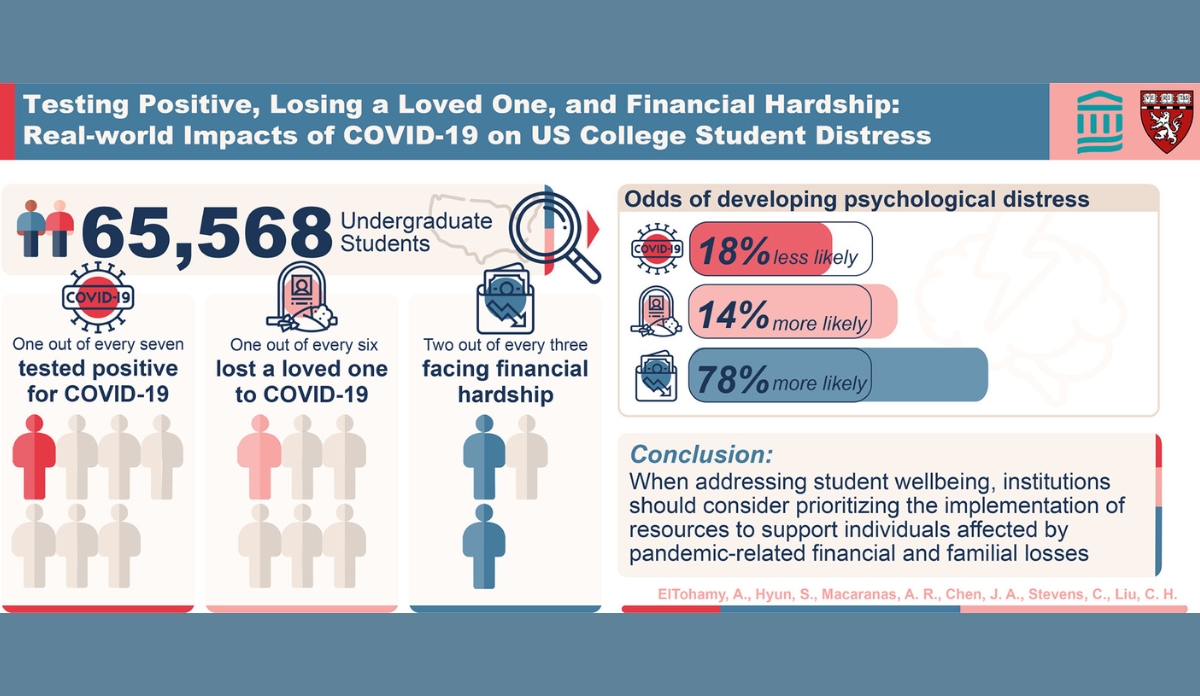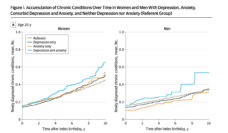The COVID-19 pandemic has placed unique and multifaceted burdens on college students across the U.S. In addition to existing academic pressures — such as succeeding in difficult courses and building professional networks — students face an increased risk of contracting COVID-19, losing friends and family, and financial hardship due to the pandemic.
What are the effects of these COVID-19-related experiences on college students’ mental health? We conducted a study of over 65,000 college students across the U.S. to find out.
Our results showed that, by Spring 2021, one out of every seven college students in the U.S. had tested positive for COVID-19, while one out of every six students had experienced the loss of a loved one to COVID-19. About two thirds of college students had faced increased financial hardship brought on by the pandemic.
We also found significant racial disparities among students reporting these three psychosocial stressors. Compared to students who identify as White, students who identify with any other racial and ethnic group(s) were more likely to have reported losing a loved one or experiencing financial hardship. White students were more likely to test positive for COVID-19 compared to Asian, Black, and Native Hawaiian students.
Students who experienced the death of a loved one were 14% more likely to experience moderate or serious psychological distress, and those who faced financial hardship were 78% more likely to experience psychological distress. Surprisingly, students who tested positive for COVID-19 were 18% less likely to experience psychological distress.
Financial burdens and bereavement have been especially important social determinants of health among college students during the pandemic, whereas contracting COVID-19 seems to have had little impact on students’ distress levels.
Institutions and educators should be aware of the possible distress that their students may be experiencing. To combat pandemic-related distress among college students, it is essential for universities to allocate resources to support students affected by pandemic-related financial hardship and familial losses. Continued financial and material support for students — through interventions such as food pantry programs and dedicated funds — should be implemented across universities. Additionally, higher-ed institutions should promote accessible mental health resources and counseling services, specifically for students who have lost loved ones to COVID-19.
Databyte via Abdelrahman ElTohamy, Anjeli R. Macaranas, and Cindy H. Liu, Testing positive, losing a loved one, and financial hardship: Real-world impacts of COVID-19 on US college student distress. Journal of Affective Disorders, 2022.
















